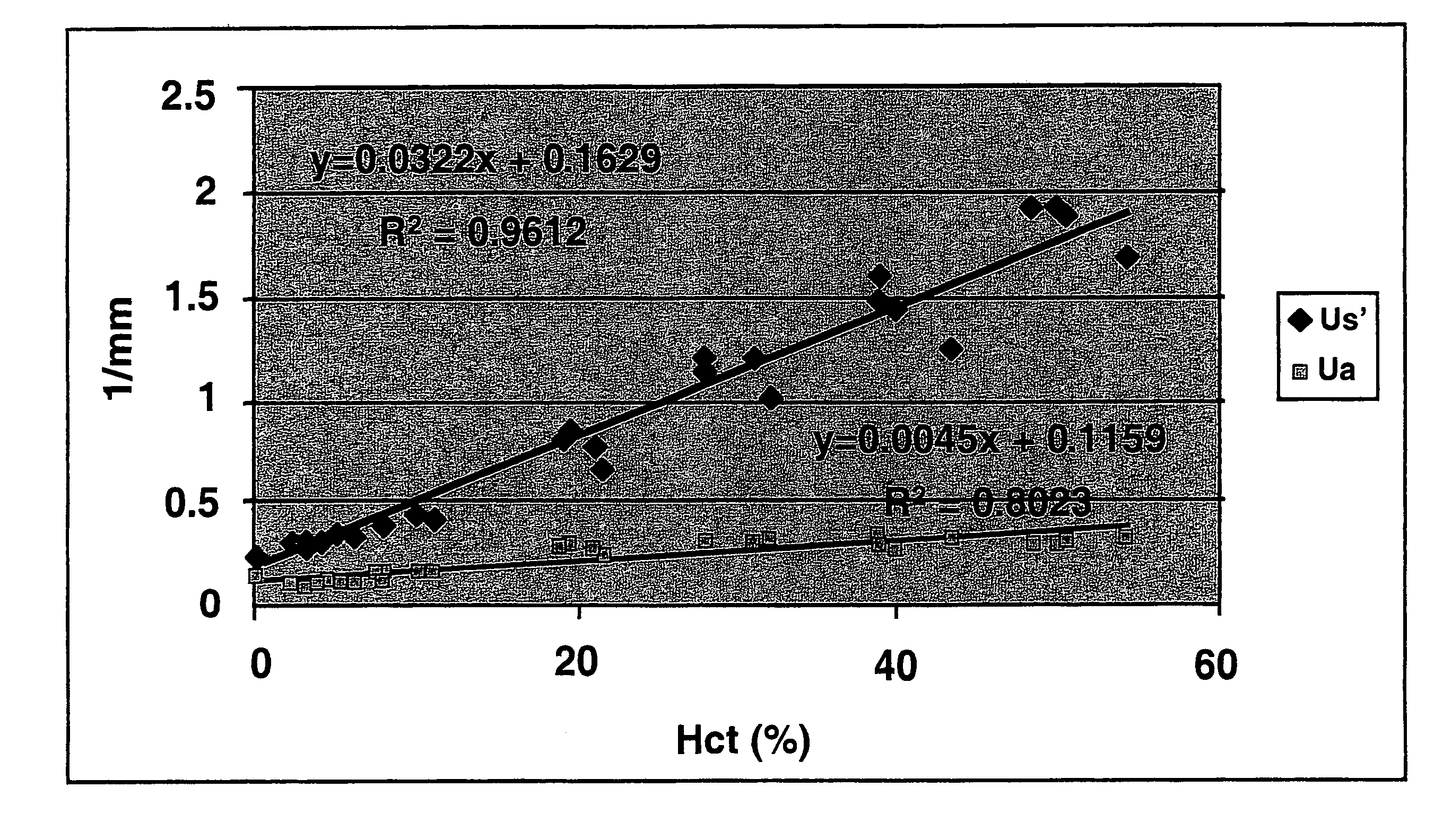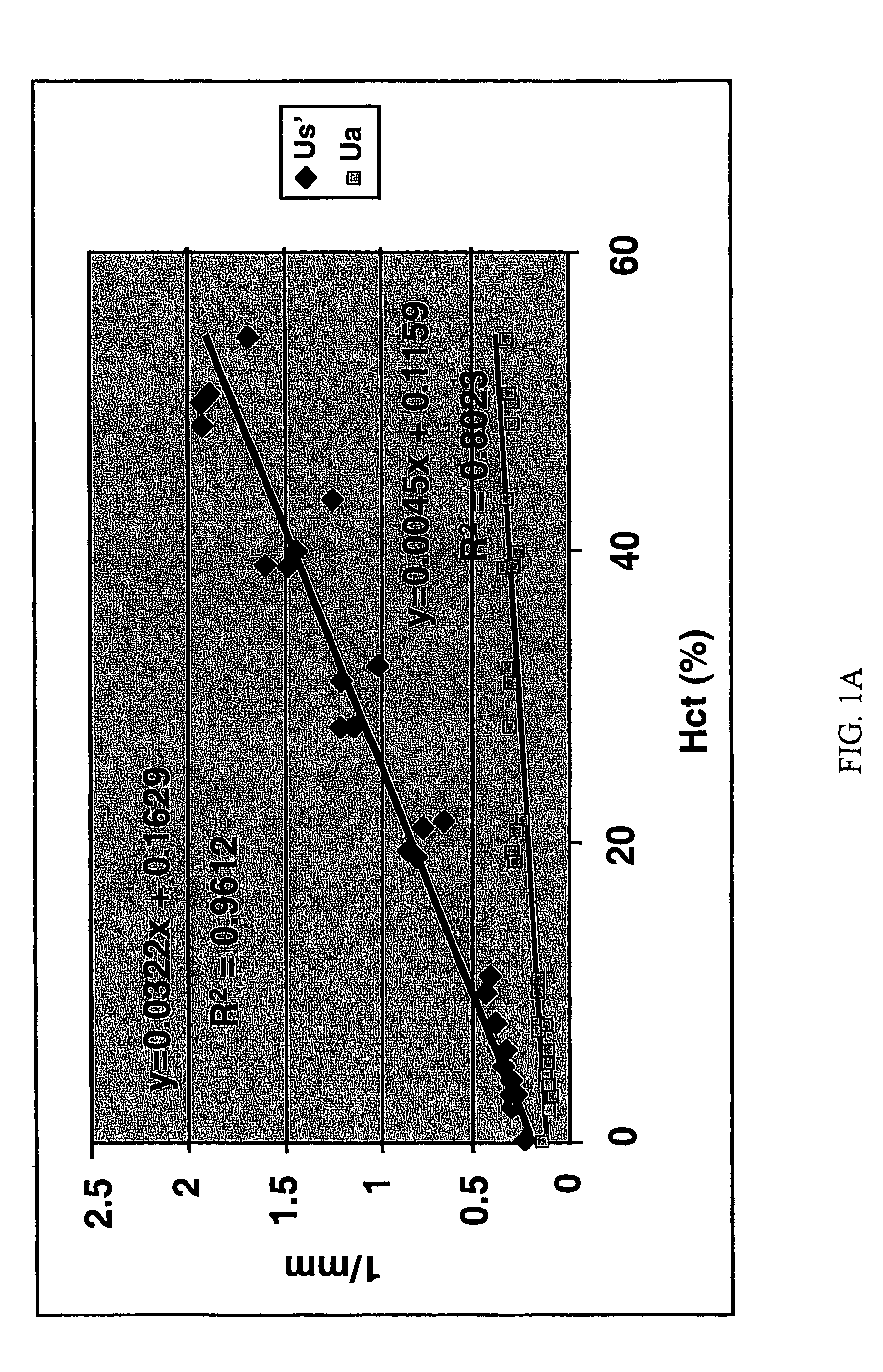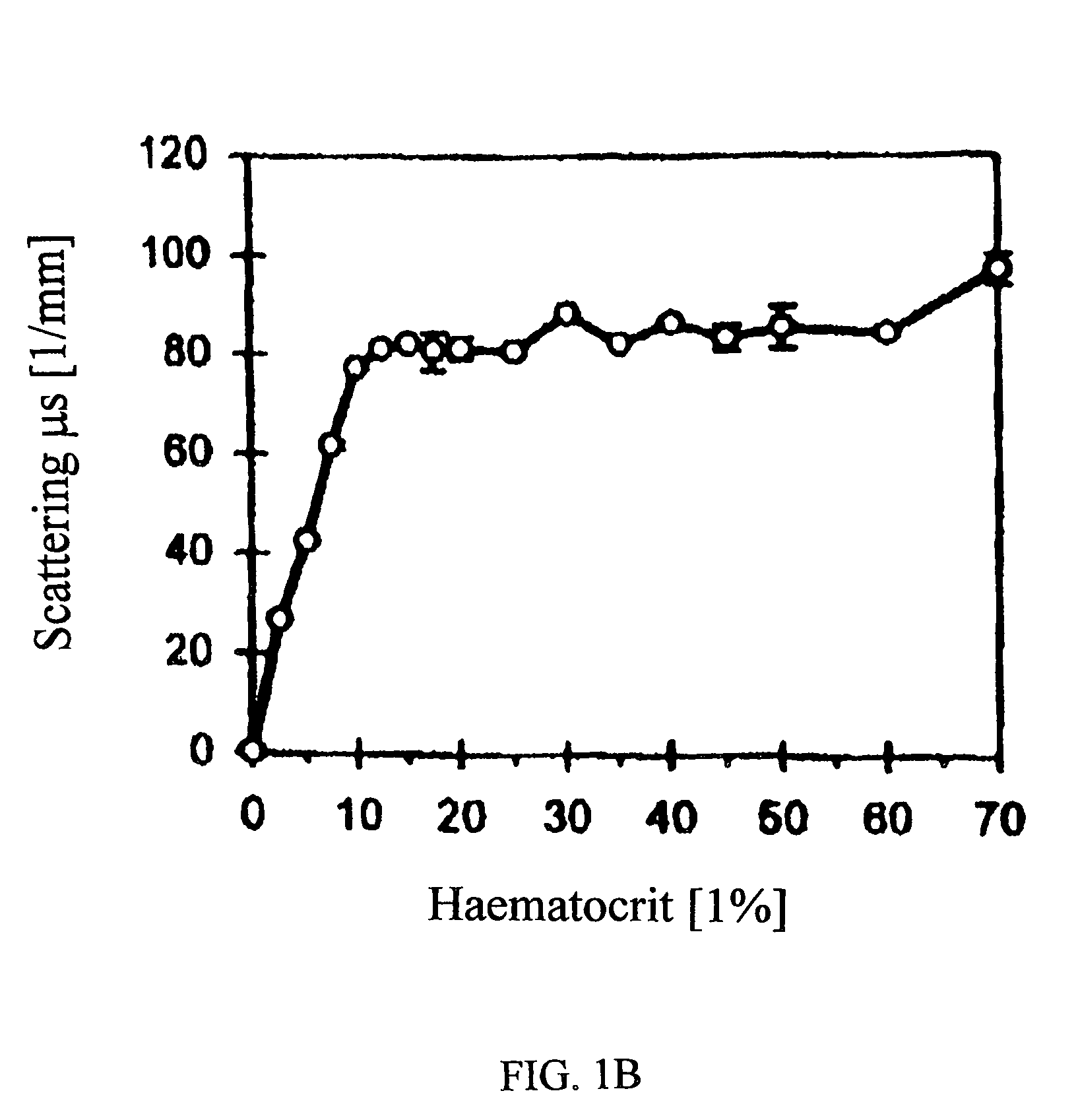Methods and compositions to reduce scattering of light during therapeutic and diagnostic imaging procedures
a technology of therapeutic and diagnostic imaging and light scattering, applied in the field of in vivo imaging, can solve the problems of attending the reduction of oxygen carrying ability and severely limit any clinical imaging application
- Summary
- Abstract
- Description
- Claims
- Application Information
AI Technical Summary
Benefits of technology
Problems solved by technology
Method used
Image
Examples
example 1
Low-Scattering, Oxygen-Carrying Blood Substitutes for Improved Imaging
[0124]The present example describes the criteria for designing or selecting low-scattering, oxygen-carrying blood substitutes for use in improved imaging and related light-based techniques, and the validation of the selection criteria in in vitro studies.
A. Methods
[0125]In vitro measurements were performed to determine the scattering and absorption properties of murine blood, blood substitute (Oxyglobin®), and dilutions of murine blood with Oxyglobin®. Oxyglobin® is isotonic to blood (prepared in a modified lactated Ringer's solution) and should not result in any hemolysis. An additional study was performed to specify the hematocrit reduction required for adequate visualization of the full RV thickness. For both studies, dilutions of fresh murine blood with Oxyglobin® (Biopure Corporation, Cambridge, Mass., www.biopure.com) were prepared to a hematocrit of 40, 30, 20, 10, 8, 5, and 3%. Pure blood (hematocrit>40%) ...
example 2
Improved OCT Myocardial Imaging with Low-Scattering Blood Substitutes
[0134]The present example in turns describes the successful in vivo imaging of cardiovascular tissues using low-scattering, oxygen-carrying blood substitutes prepared according to the selection criteria in Example 1.
A. Methods
1. OCT Instrumentation
[0135]The OCT system employed in the present example is based on a single-mode optical fiber Michelson interferometer and a semiconductor amplifier light source. The source has a center wavelength of 1310 nm and a spectral bandwidth of 60 nm. To visualize light incident on the murine myocardium with the unaided eye, a wavelength division multiplexer was used to combine 630 nm red light with 1310 nm source. A rapid scan optical delay line (Tearney et al., 1997) enables an image of a dynamic tissue, such as a beating murine heart, to be acquired at video rate. The axial and lateral resolutions were 16 μm and 12 μm, respectively. One A-scan (a depth scan) corresponded to 2 m...
PUM
 Login to View More
Login to View More Abstract
Description
Claims
Application Information
 Login to View More
Login to View More - R&D
- Intellectual Property
- Life Sciences
- Materials
- Tech Scout
- Unparalleled Data Quality
- Higher Quality Content
- 60% Fewer Hallucinations
Browse by: Latest US Patents, China's latest patents, Technical Efficacy Thesaurus, Application Domain, Technology Topic, Popular Technical Reports.
© 2025 PatSnap. All rights reserved.Legal|Privacy policy|Modern Slavery Act Transparency Statement|Sitemap|About US| Contact US: help@patsnap.com



